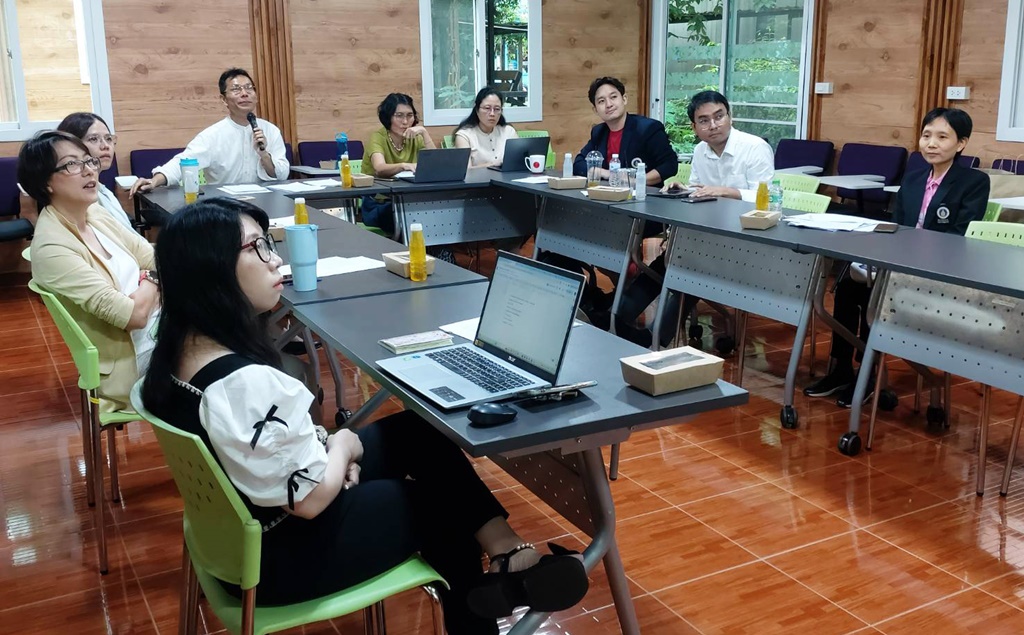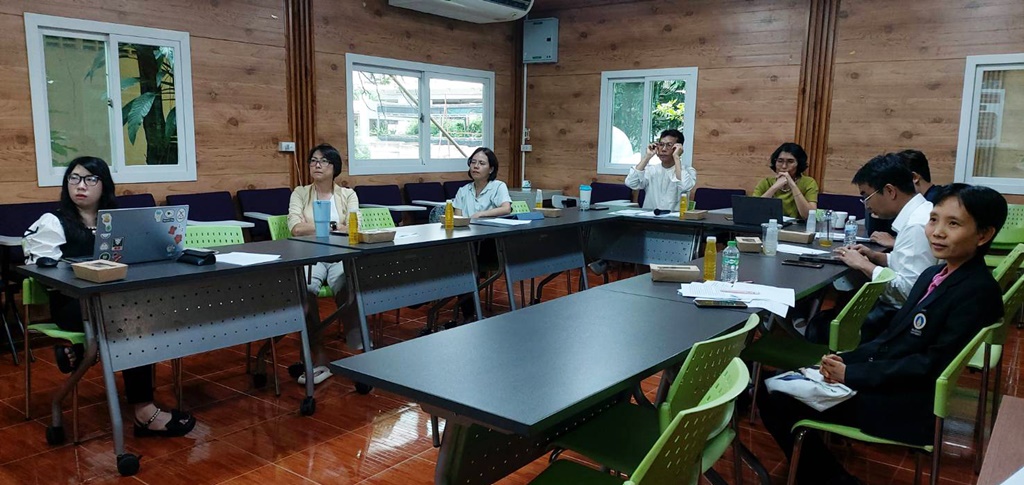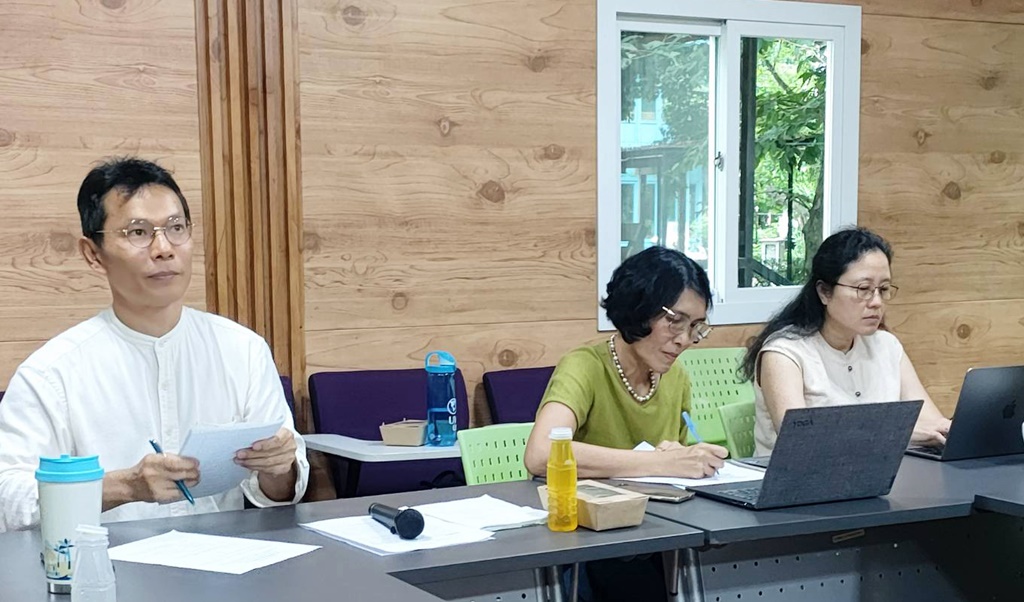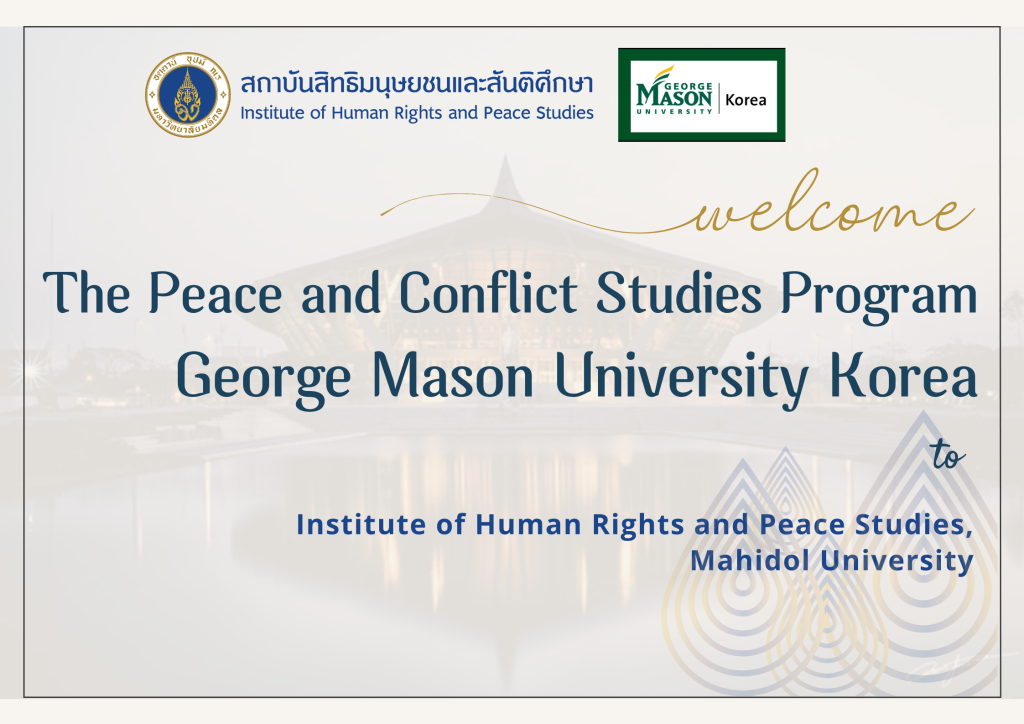
The project to integrate knowledge of human rights and peace studies across disciplines, led by Dr. Poldham Chancome and his team, organized the 2nd academic discussion forum on the topic “Conflict in a Multidisciplinary Perspective” on July 31, 2024, at Room 118, Institute of Human Rights and Peace Studies, Mahidol University, Salaya, and via an online platform.
There were a total of 16 lecturers, experts, and participants. The group included 10 experts from both inside and outside Mahidol University, namely, Prof. Dr. Burin Gumjudpai, Director of the Centre for Theoretical Physics and Natural Philosophy “Nakhonsawan Studiorum for Advanced Studies” (NAS); Assoc. Prof. Dr. Sukanya Sereenonchai, Faculty of Environment and Resource Studies; Dr. Arisa Sumamal, Contemplative Education Center; Dr. Phongkon Weerpiput, Faculty of Liberal Arts; Dr. Sarawut Kraisame, The Research Institute for Languages and Cultures of Asia (RILCA); Assoc. Prof. Dr. Gothom Arya, Advisor to the Institute of Human Rights and Peace Studies; Asst. Prof. Nukool Rattanadakul, Biologist and Ecologist, Prince of Songkla University; Asst. Prof. Dr. Somporn Chuayaree, Faculty of Science and Technology, Department of Mathematics and Computer Science, Prince of Songkla University; Phra Pramote Vatakovito, Director of the Peace Studies Program, Mahachulalongkornrajavidyalaya University; Asst. Prof. Chokchai Wongtani, Institute of Peace Studies, Prince of Songkla University, and personnel from the Human Rights Institute, including Dr. Vachararutai Boontinand, Dr. Bencharat Sae Chua, Asst. Prof. Dr. Naparat Kranrattanasuit, Dr. Chomkate Ngamkaiwan, and Mr. Bordin Saisaeng, PhD candidate.
During this discussion, experts and participants exchanged perspectives on conflicts from various disciplines, illuminating ideas for one another. The discussion may lead to the integration of knowledge in fields such as science, social sciences, physics, biology, mathematics, political science, linguistics, liberal arts, contemplative education, psychology, neuroscience, and religious studies. Importantly, it fosters synergy in integration for educational missions, research, and academic services.


